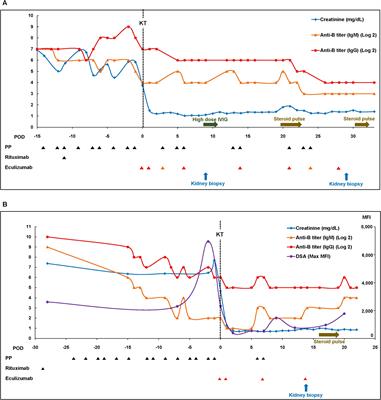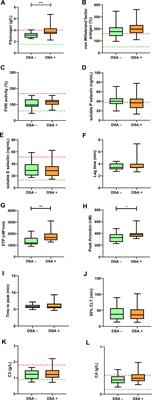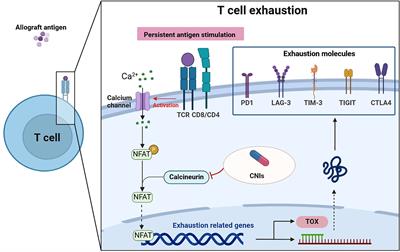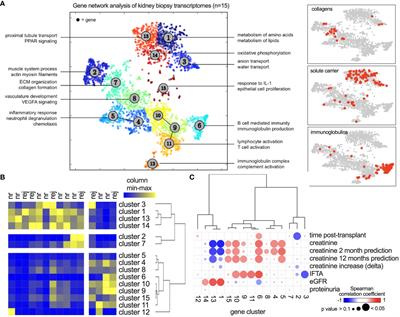BRIEF RESEARCH REPORT
Published on 28 Oct 2024
Successful eculizumab treatment as an adjunctive therapy to desensitization in ABO-incompatible living donor kidney transplantation and its molecular phenotypes
doi 10.3389/fimmu.2024.1465851
- 2,498 views
- 2 citations





